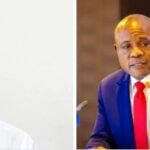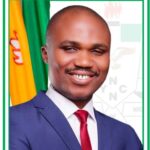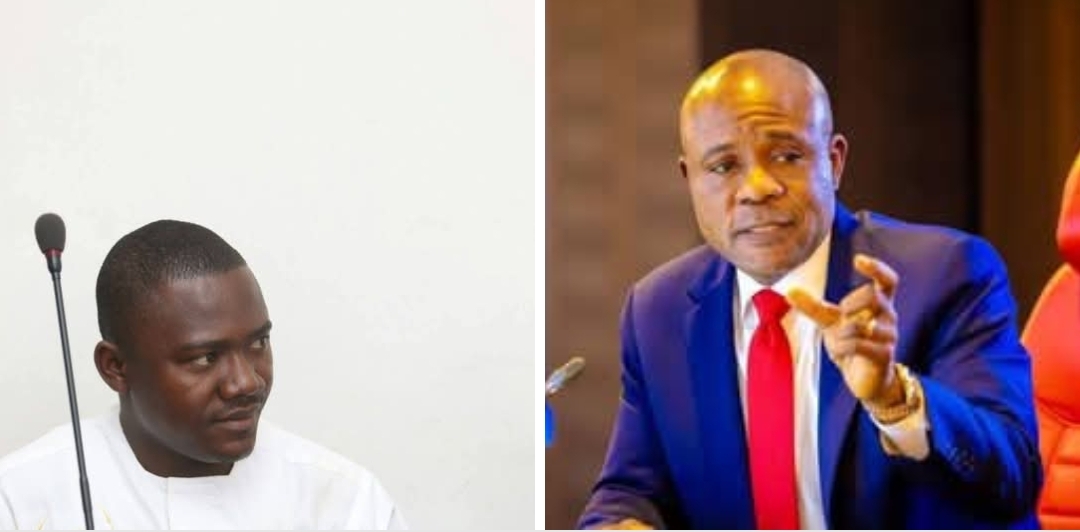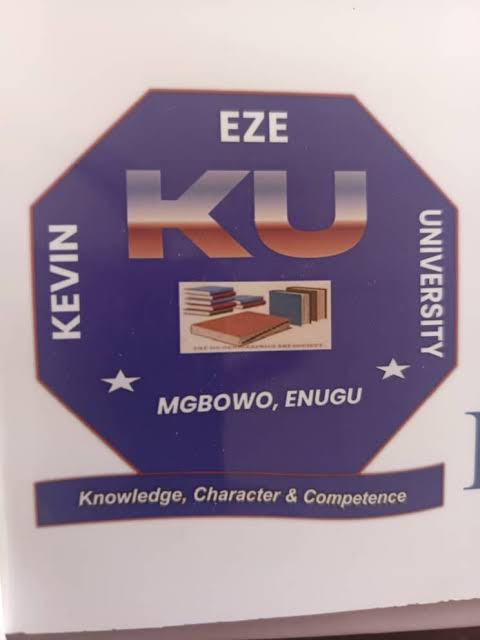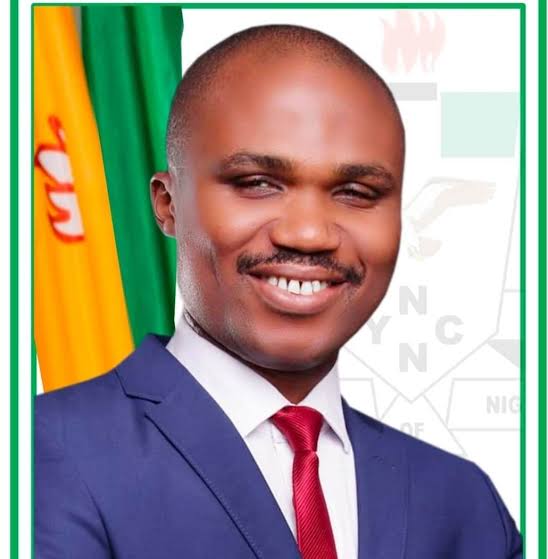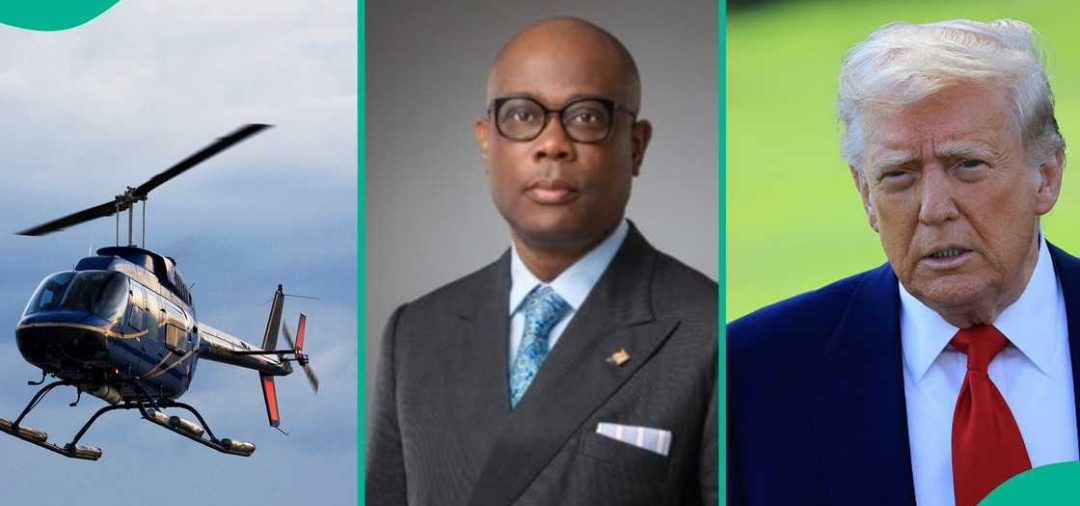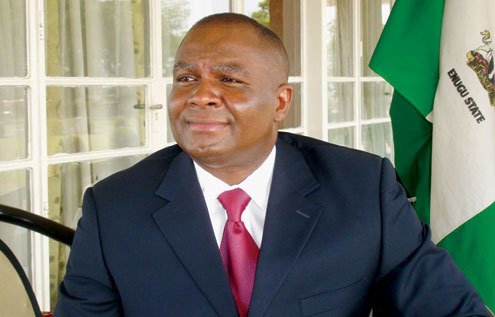 It would be utterly difficult to find one Nigeria who was at tune with Nigeria’s politics during the Obasanjo era who did not know the then governor of Enugu State, Chimaroke Nnamani (Ebeano). He was outspoken, full of mirth and never lacked scholarly words to carry his message and intent to his audience.
It would be utterly difficult to find one Nigeria who was at tune with Nigeria’s politics during the Obasanjo era who did not know the then governor of Enugu State, Chimaroke Nnamani (Ebeano). He was outspoken, full of mirth and never lacked scholarly words to carry his message and intent to his audience.
He has had many trials and tribulations when he left the corridors of Lion House in 2007 but, while he was governor, he touched lives and took a good shot at improving the state’s fortunes in a number of ways.
Nnamani established District Education Centres in the state, conceived and built the permanent campus of the Enugu State University of Science and Technology (ESUT), constructed and handed over to the Federal Government, the Enugu Campus of the Nigerian Law School and, also, constructed and handed over to the Nigerian Air Force, the Airforce Comprehensive High School at Agbani. His administration established new special science schools in different parts of the state, carried out the renovation of public primary and secondary schools and provided them with school infrastructure.
As governor, primary healthcare delivery was one of his major concerns and, for this cause, his administration established four district hospitals and 19 cottage hospitals in the state. A partnership with the United Kingdom Department for International Development (DFID) saw to the rehabilitation and upgrade of many healthcare facilities under the Partnership for Transforming Health Systems (PATHS I & II). The flagship project of the administration in the health sector, however, was apparently the transformation of the former General Hospital at Parklane, GRA, Enugu, into the present ESUT Teaching Hospital and ESUT College of Medicine. The massive project involved the construction of new buildings, refurbishing of existing ones and the provision of modern equipment that enabled the facility to pass the accreditation of the relevant authorities in the health cum education sectors.
During his time in government, Nnamani’s administration consciously pursued a policy of enhanced mass participation in the political process and endeavoured bringing governance closer to the people at the grassroots. Governor Nnamani carried out far-reaching reforms in local administration which have continued to define the structure of grassroots politics and governance in Enugu State.
Following a democratic process, his administration created 56 development centres out of the 17 local government areas of the state, complete with the simultaneous construction of 39 headquarters for the new development centres, while the existing 17 council secretariats served as headquarters for the remaining 17 development centres. Over 200 new autonomous communities were also created (each with its own town union and traditional ruler), the first time since the creation of Enugu State, thus bringing the total number of autonomous communities in Enugu State to 367 as at May 2007. These reforms went hand in hand with the Community County Council (CCC) initiative, later refocused as the Community Development County Councils (CDCC), a rural development partnership between the rural communities and the State Government. The administration established the Ministry of Poverty Reduction and Human Development which has evolved into a grassroots poverty management scheme in the state. There was also the Local Empowerment and Environmental Management Projects (LEEMP), another bilateral rural development partnership with the World Bank/UK Government that focused on the construction and grading of rural feeder roads and other poverty eradication projects in the rural communities.
Infrastructurally, his administration engaged in road construction and rehabilitation, wining it popular acclaim. Also, his administration pursued a policy of lighting up the rural communities with the provision of electricity. By the time his time in office ran its course, over 130 rural communities benefitted from this intervention.
The administration improved public water supply in the state. Some of the interventions in the sector included the Ozalla Ezimo Water Scheme in Udenu LGA, expansion of Enugu Urban water supply, expansion of the Ajali River water works, reactivation of the Ede-Obala booster station for water supply to Nsukka town, Agbani/Amodu water reservoir, revival of Awhum water scheme, and the construction of hundreds of motorised boreholes in the rural communities across the state.
Besides his achievements in office, he took his scholarly approach into politics and begat a new set of political class – the ‘Ebeano’ ideology – which spawned Senator Ken Nnamani, who later became President of the Senate between 2005 and 2007; Deputy President of the Senate Ike Ekweremadu, Sullivan Chime, Senator Ayogu Eze and the current governor Ifeanyi Ugwuanyi.
After his time as governor and as a Senator were done, he got into a lot of trouble with the law and with the new political class entrenched in his absence and, sadly, most members of the Ebeano family jumped ship and abandoned him. Feeling betrayed and abandoned after his political ordeal was over, Nnamani left the Peoples Democratic Party (PDP) for the Peoples for Democratic Change (PDC) but maintained the Ebeano political family.
After tottering on the edge of political oblivion, he was embraced by one of his loyalists and current governor of Enugu State, Ifeanyi Ugwuanyi (aka ‘Gburugburu’), who helped re-package, re-engineered and delivered his dream to be the Senator representing Enugu East Senatorial zone on the platform of the Peoples Democratic Party (PDP) on February 23, 2019.
Speaking during the 2019 campaign rally, Senator Nnamani thanked God for using Gov. Ugwuanyi, whom he described as “a great leader and a man of uncommon leadership virtues who respects the symbol and heritage of Nsukka”, for reviving his political life.
Barring any unforeseen circumstances, Senator Nnamani will resume in the Senate as a ranking Senator in June. It is, therefore, not out of place to greet any politician who wins or survives an election battle in Nigeria “Happy Survival”.
While those who enjoyed his time in the dungeons of political despair, those who missed him would be waiting to hear him debate so brightly on the floor of the Senate and deliver more ‘dividends of democracy’ – a word he coined in 2007 – to the people of Enugu East.
One thing is certain. If nothing distracts him – of course, all his demons are beneath his feet – Nnamani will bring vibrancy and brilliance into parliamentary business. No doubt, his return would add value to the quality of law-making, bringing his experience in the Executive and his experience as a Senator. He will blend it with his experience in America where Nigeria borrowed the presidential system of government.
Before joining politics in 1999, he had plied his trade as a medical doctor in America for many years. He will surely bring excellence and capacity to any role he will play. More importantly, Chimaroke Nnamani is a benevolent leader in the Southeast geo-political zone, who is expected to be the rallying point. Above all, he is most likely to re-enact the Ebeano Lecture Series to discuss national issues.
No condition is permanent – the return of ‘Ebeano’ is the beginning of wisdom in Enugu politics.

